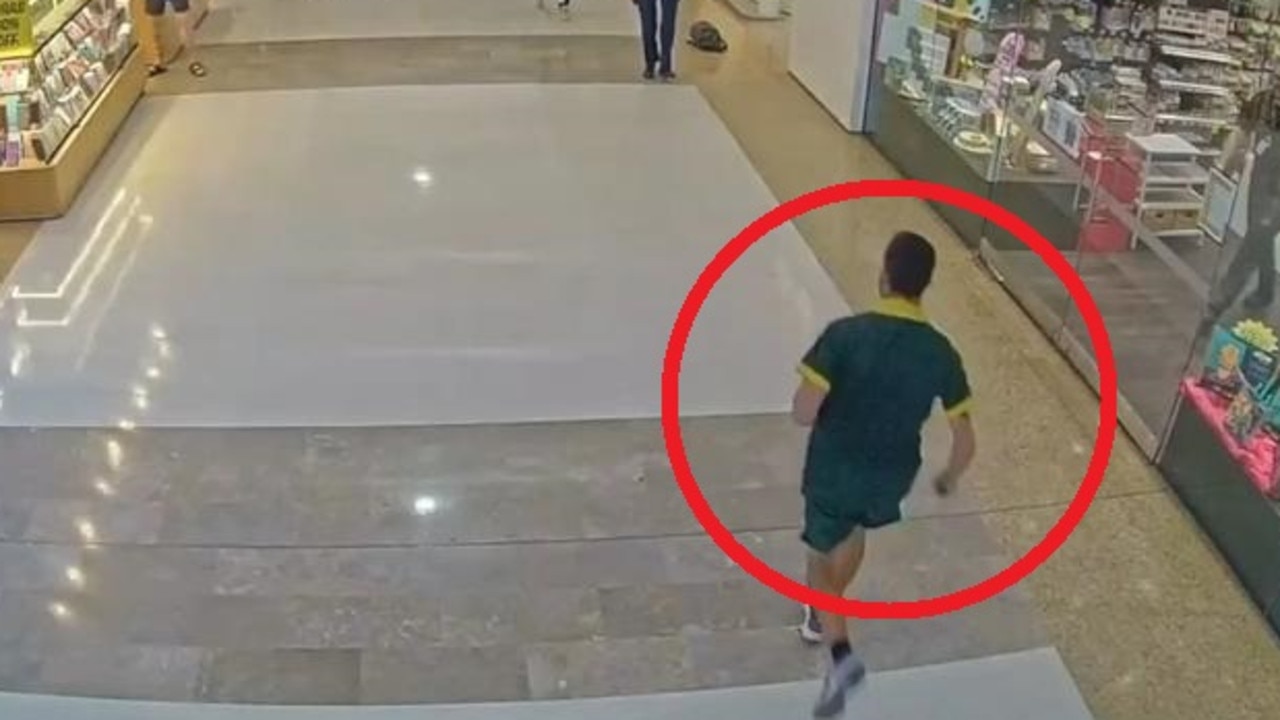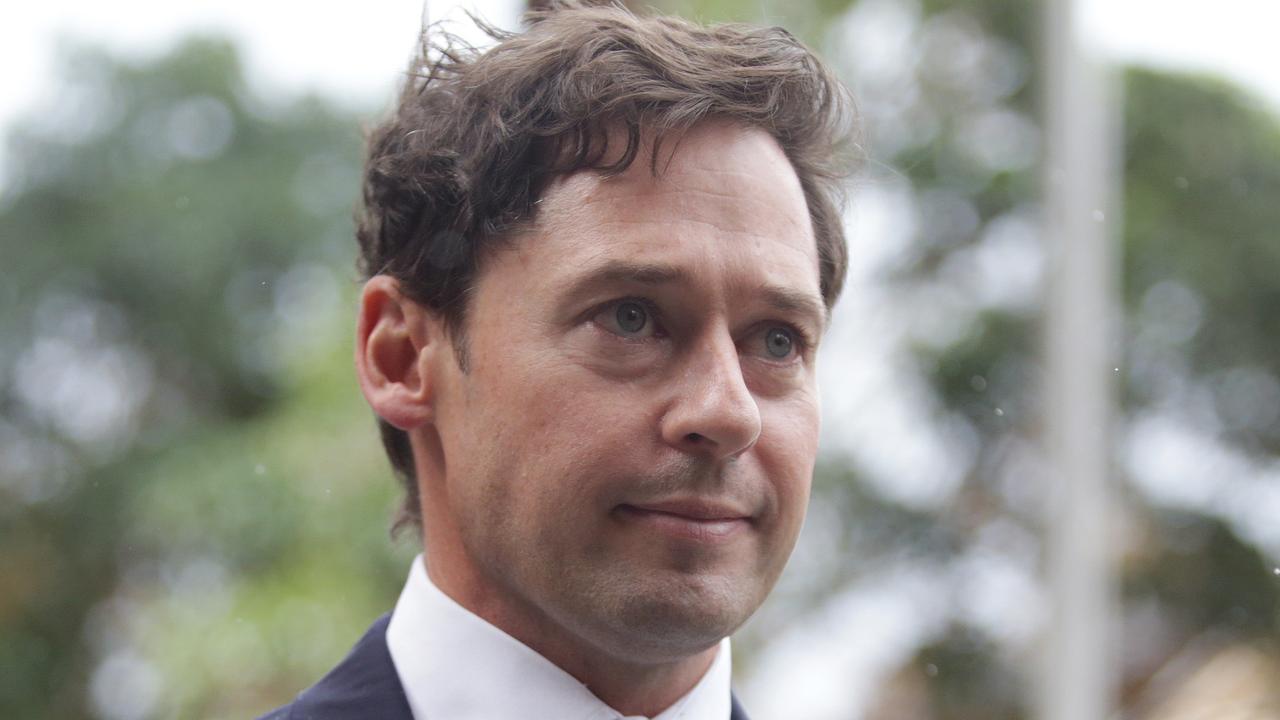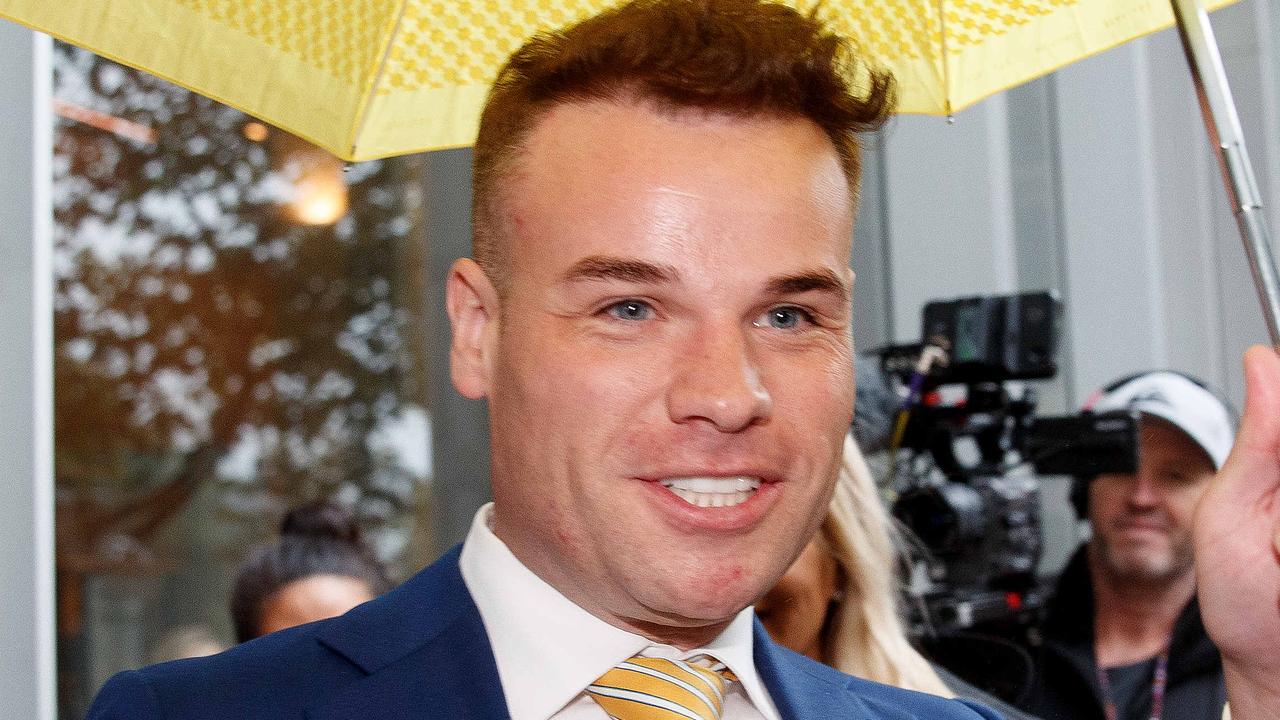Coronavirus NSW: Lawyers say many $1000 fines could fall over in court
Dozens of people have been issued fines of $1000 or more for breaching restrictions but lawyers say many have a case to challenge in court.

Many penalties imposed under the NSW COVID-19 public health orders would likely fall over in court, lawyers have said, describing the state's new legislation as flawed, deficient and lacking clarity.
“It seems likely that many people will be able to successfully challenge fines issued or charges brought in court in NSW when they are alleged to have left home without a reasonable excuse in breach of the ministerial direction on movement,” barrister Felicity Graham of Black Chambers told news.com.au.
RELATED: Follow the latest coronavirus updates
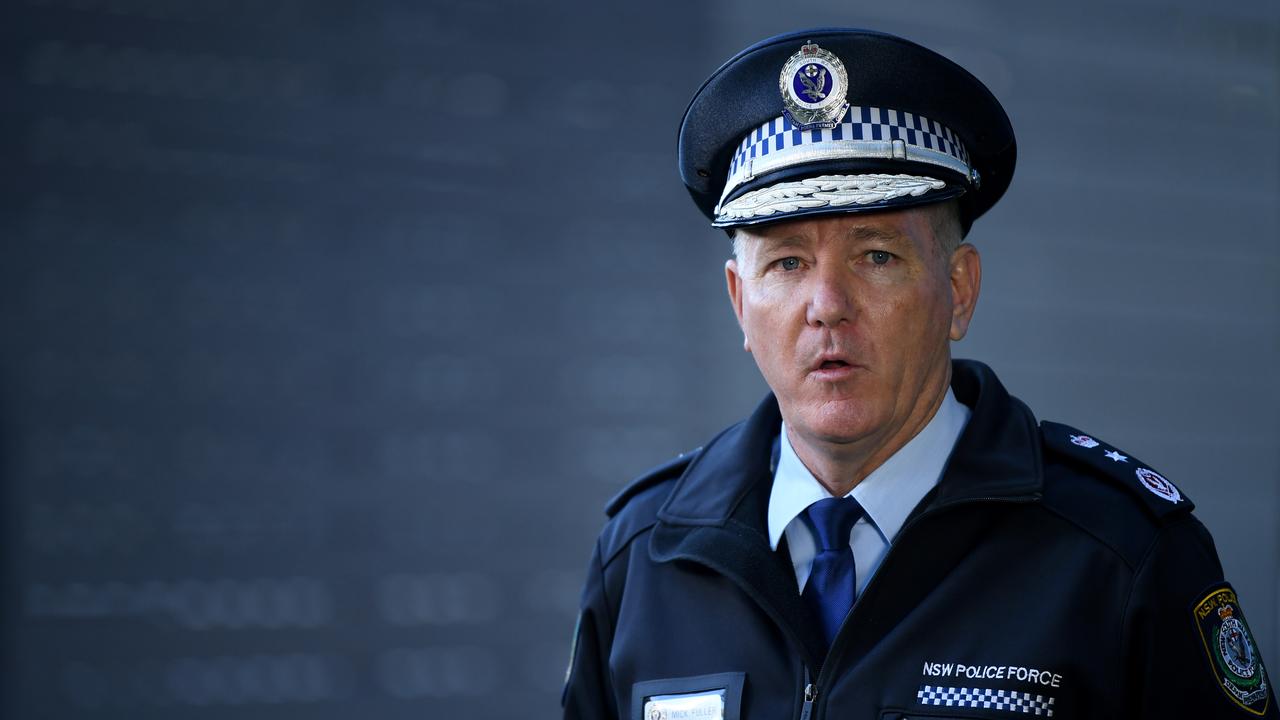
NSW Police Commissioner Mick Fuller has vowed to personally review every penalty infringement notice issued in relation to alleged breaches of public health orders, “to ensure the issuing of such infringements is the most appropriate course of action”.
“But we know that police are not necessarily good at judging their own,” Ms Graham said.
“Anyone concerned about being unfairly fined or experiencing financial hardship as a result should seek legal help, such as from their local Community Legal Centre. There are a number of options for people including requesting a review from Revenue NSW, or appealing to the Local Court.”
Individuals allegedly in breach of the NSW Public Health (COVID-19 Restrictions on Gathering and Movement) Order 2020 face on-the-spot fines of $1000 while businesses are fined $5000.
NSW Health Minister Brad Hazzard signed the order at 10.20pm on March 30. It was enforceable one hour and 40 minutes later, on March 31.
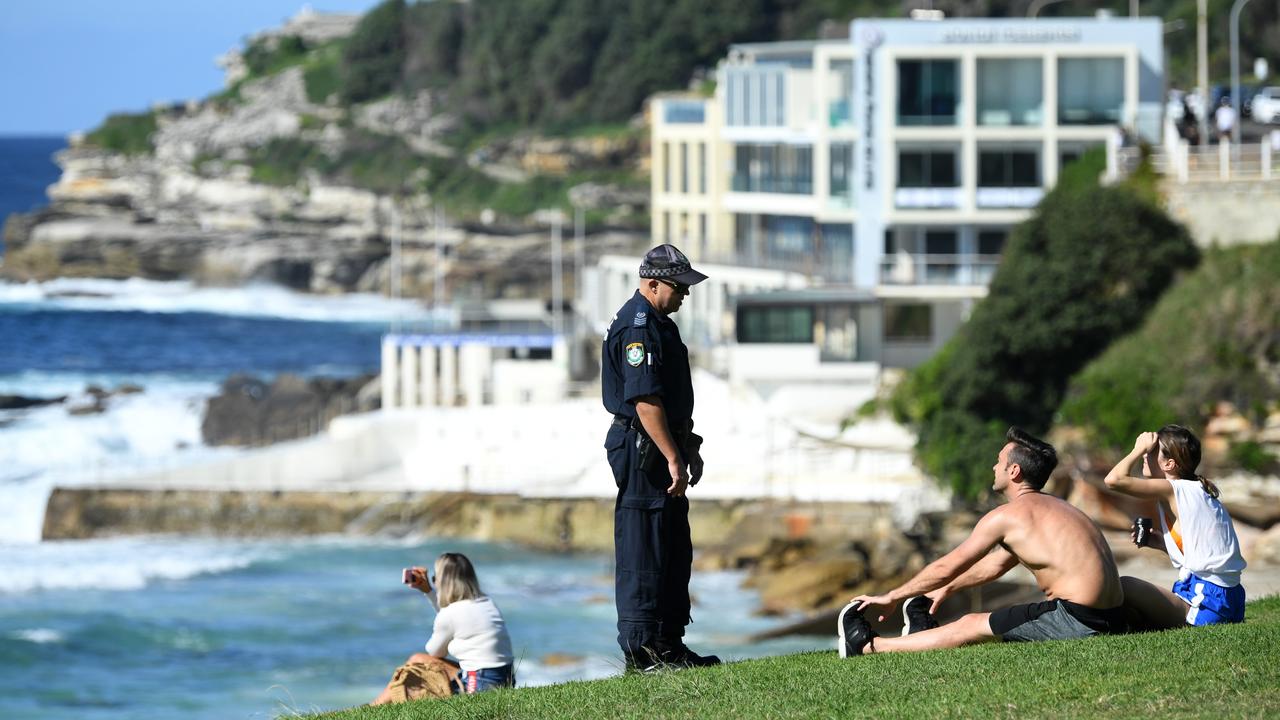
‘THEY ARE ASKING THE WRONG QUESTION’
In the past fortnight, dozens of people have been slapped with $1000 fines including for driving or standing around because they were “bored” or for sitting in parks, at beaches, on benches or in parked cars when they didn’t have a reasonable excuse not to be at home.
Ms Graham said the NSW directions on movements and gatherings “suffer from a number of deficiencies”.
She said if someone follows the direction and leaves their home with a reasonable excuse, including for any one of the 16 reasonable excuses determined by the Minister such as shopping for essential household supplies or to exercise, “there is nothing that requires a person to return home afterwards”.
RELATED: Man fined $1000 for eating a kebab on bench
RELATED: Group of men caught eating pizza in car
“A person may then go over to a friend’s place and socialise (even in a big private gathering), or they may occupy public spaces for whatever purpose, without necessarily being in breach of the direction,” Ms Graham said.
“This kind of behaviour of course is not in the spirit of the exhortation which comes from the government officials and health experts on a daily basis to ‘stay at home’ to protect ourselves and others.
“However, when NSW police officers stop people and ask them, ‘What are you doing out of home?’ they are asking the wrong question and any answer does not determine whether a person has breached the COVID-19 directions.”
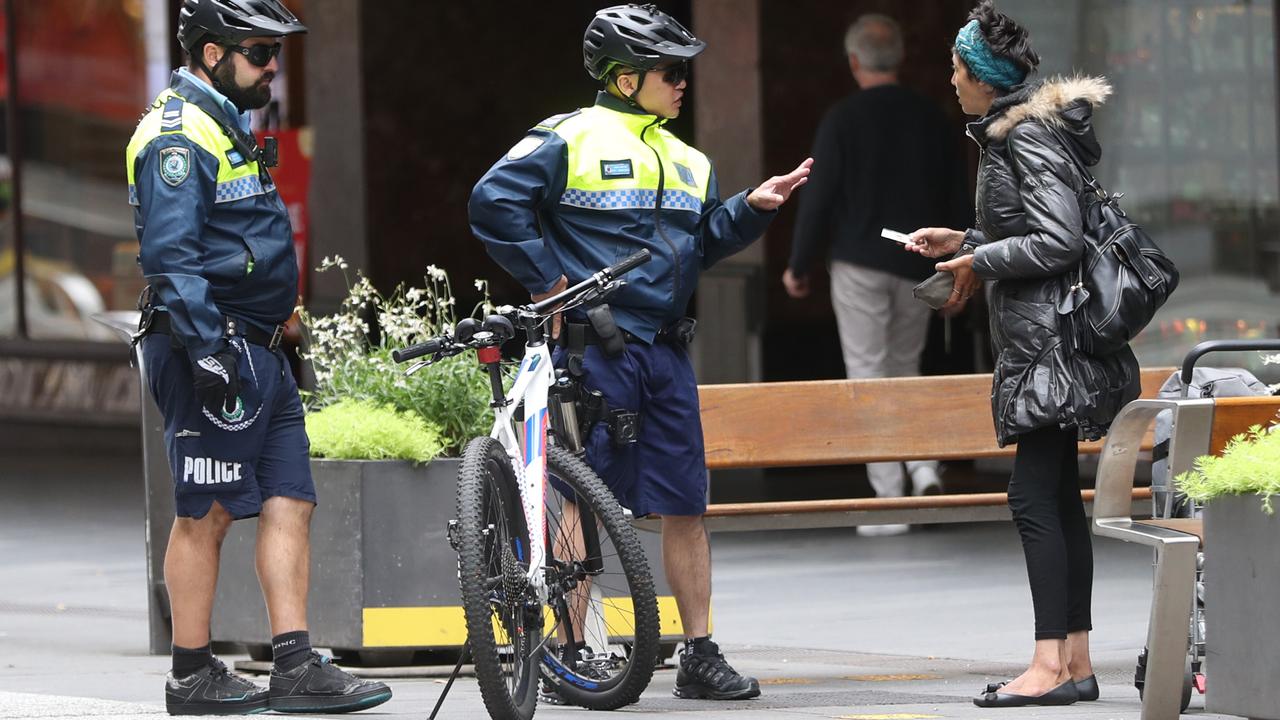
This loophole is expressly addressed in the Queensland home confinement direction that states residents should only be away from their properties for the time “reasonably necessary to accomplish” one of the permitted purposes to have left.
Ms Graham said police officers across NSW are enforcing the directions “sometimes inconsistently, and irrationally”.
“This will ultimately undermine trust in the public health messages and cause the public’s preparedness to comply with public health advice and formal directions to wane,” she said.
She said the “lack of clarity” in Mr Hazzard’s directions “contributes to arbitrary use of power by police tasked with enforcing the rules”.
DIFFERING RULES IN NEIGHBOURING DISTRICTS
In one example, the defence barrister noted police in neighbouring police districts south of Sydney had provided “contradictory advice” to members of the public via their official Facebook pages regarding driving a short distance to the beach, park or trail to exercise.
“Wollongong Police District says it is fine while Lake Illawarra Police District say no,” Ms Graham said.
“The advice given by Lake Illawarra Police District goes far beyond what the Minister’s direction prohibits.”
Prior to repeating the advice from Wollongong PD on April 10, Lake Illawarra PD had told a local woman who asked about a 15-minute drive that she “should not be travelling” for daily exercise.
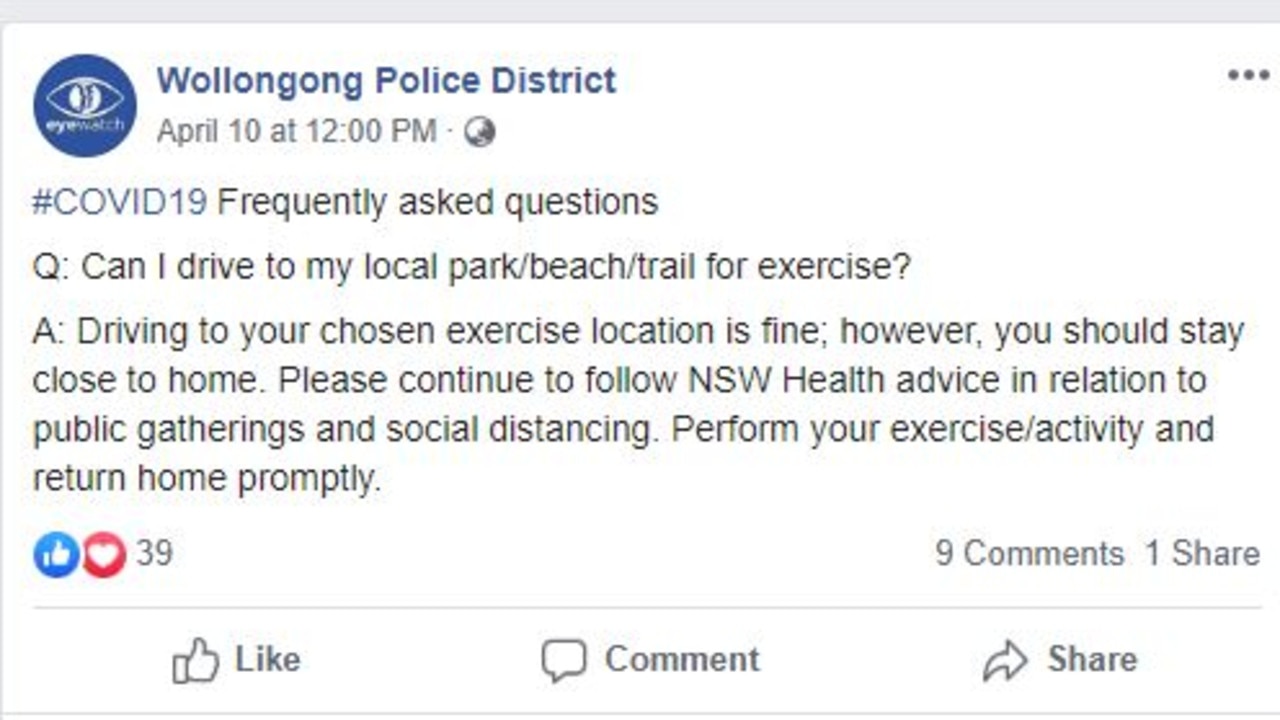
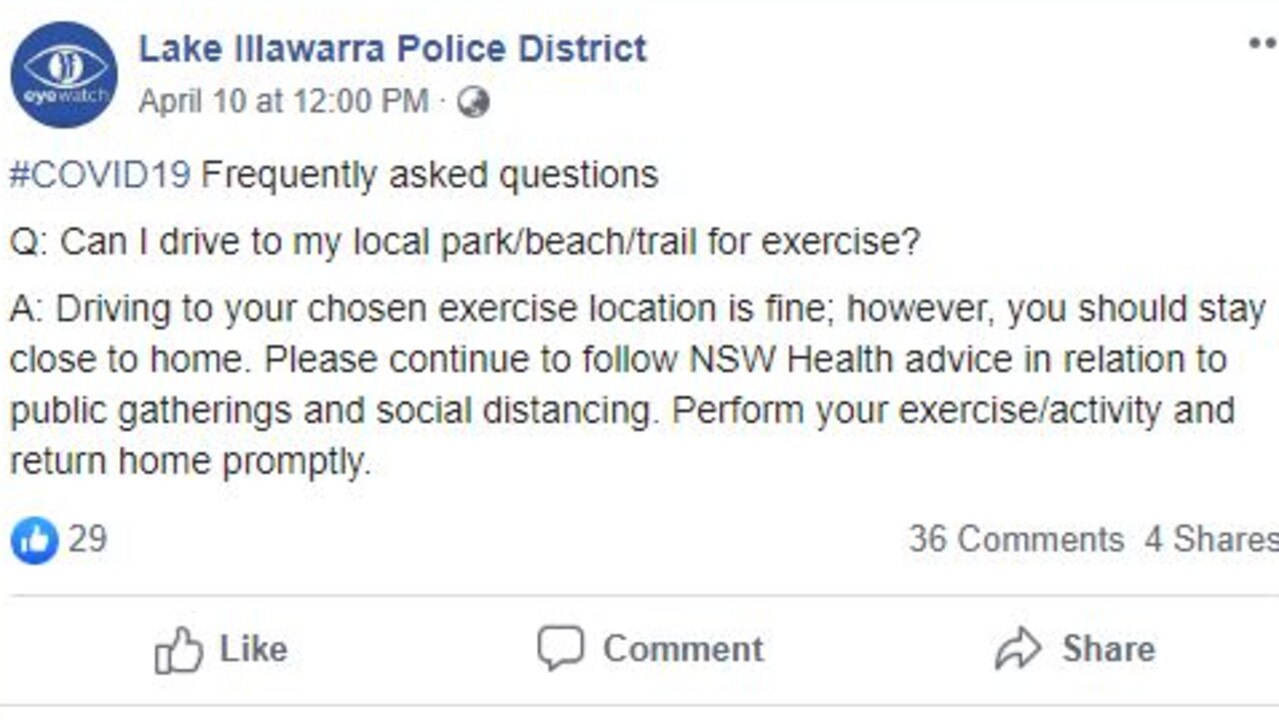
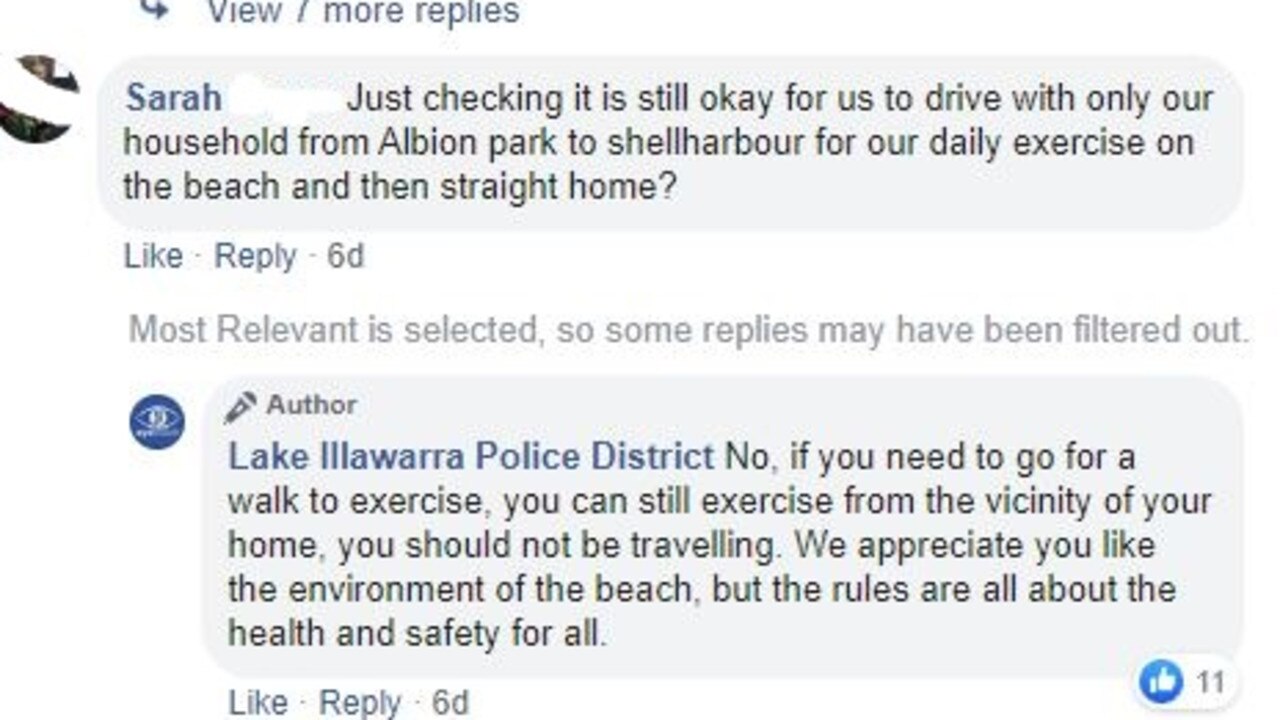
Ms Graham said a listener of The Wigs podcast she appears on contacted them on Monday to say police in Rose Bay had moved on two boys who were putting their kayak into the water, “when it would appear the boys were simply out to do some exercise, entirely lawful conduct”.
“Whilst police officers are the immediate arbiters of what amounts to a reasonable excuse or not because they hold the infringement book, it will be for the court to determine whether a person has breached any direction, after having proper notice of the terms of the direction,” Ms Graham said.
Barrister Stephen Lawrence, also of Black Chambers, described the apparent focus in NSW on leaving home as “one very significant ambiguity”.
‘MIDDLE CLASS ASSUMPTION’
Mr Lawrence said another “issue” is that the Public Health Act clearly states that you can only breach the public health direction if you have notice of the direction.
“So police certainly should not be fining people unless people have first been warned,” he said.
“There’s a real middle class assumption being applied to a lot of these things.
“We are seeing so many fines in regional areas that realistically are far from the metropolitan hot spots of this virus. And the assumption that everyone has a comfortable home, that they sit at home and watch ABC News 24 and get all the details, is just quite wrong.”
NSW Health on Wednesday said it is increasing testing and surveillance in several areas including Penrith, Sydney’s inner west, Liverpool, Randwick, Waverley, Woollahra, Blacktown, Cumberland, Westmead, Ryde, Manning and Lake Macquarie.
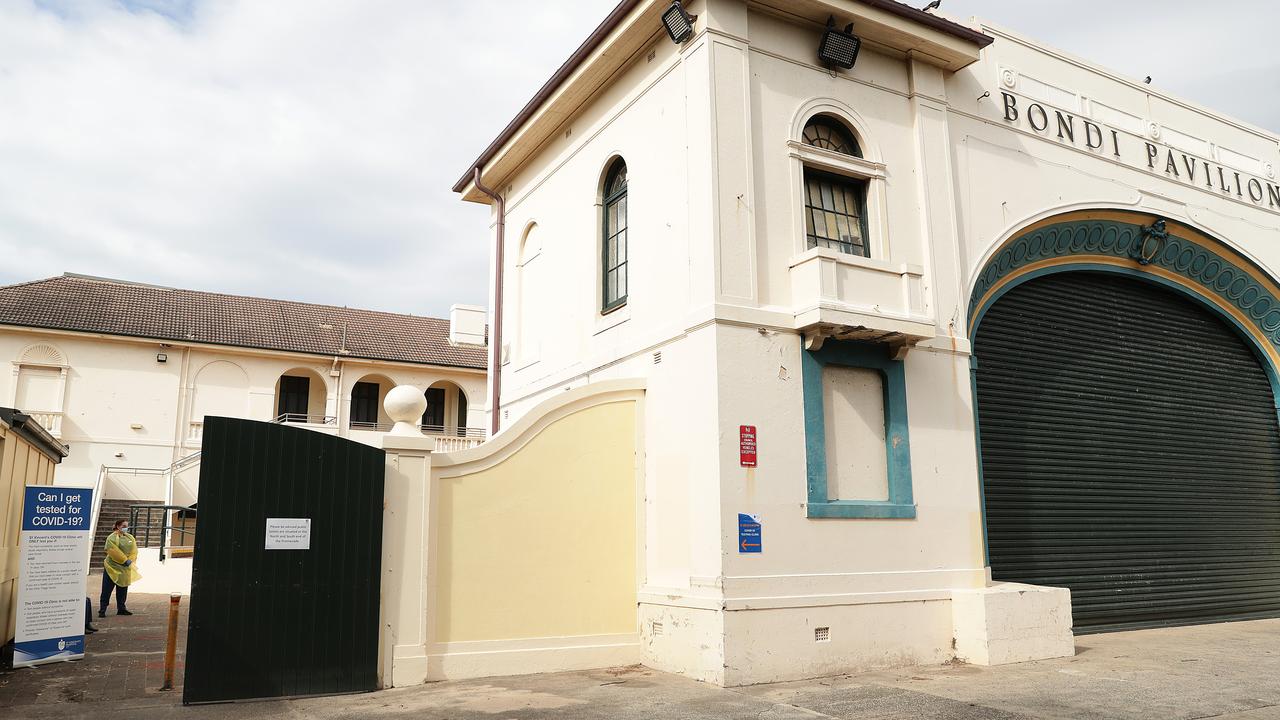
A Darlinghurst woman, 25, was issued a $1000 fine on Saturday afternoon for failing to comply with a public health order after she was found on Copacabana Beach on the state’s Central Coast.
“Police allege she said she was watching her boyfriend who was surfing,” NSW Police said in a statement.
Mr Lawrence said travel for the purpose of engaging in a permissible activity such as care or exercise “is one of the real grey areas” and it remains ambiguous as to “how far one can travel”.
He said the public health order has “understandable errors” because it was “drafted in haste”.
“But now the time is passing, I think the Government can do better and they can amend and reissue it and clear up a lot of these problems,” Mr Lawrence said.
An amended order has already been issued to address five points including that staff conducting a funeral service were initially included in the 10-person limit at funerals. They are now excluded from the head count.
RELATED: Couple fined for posting travel photos online
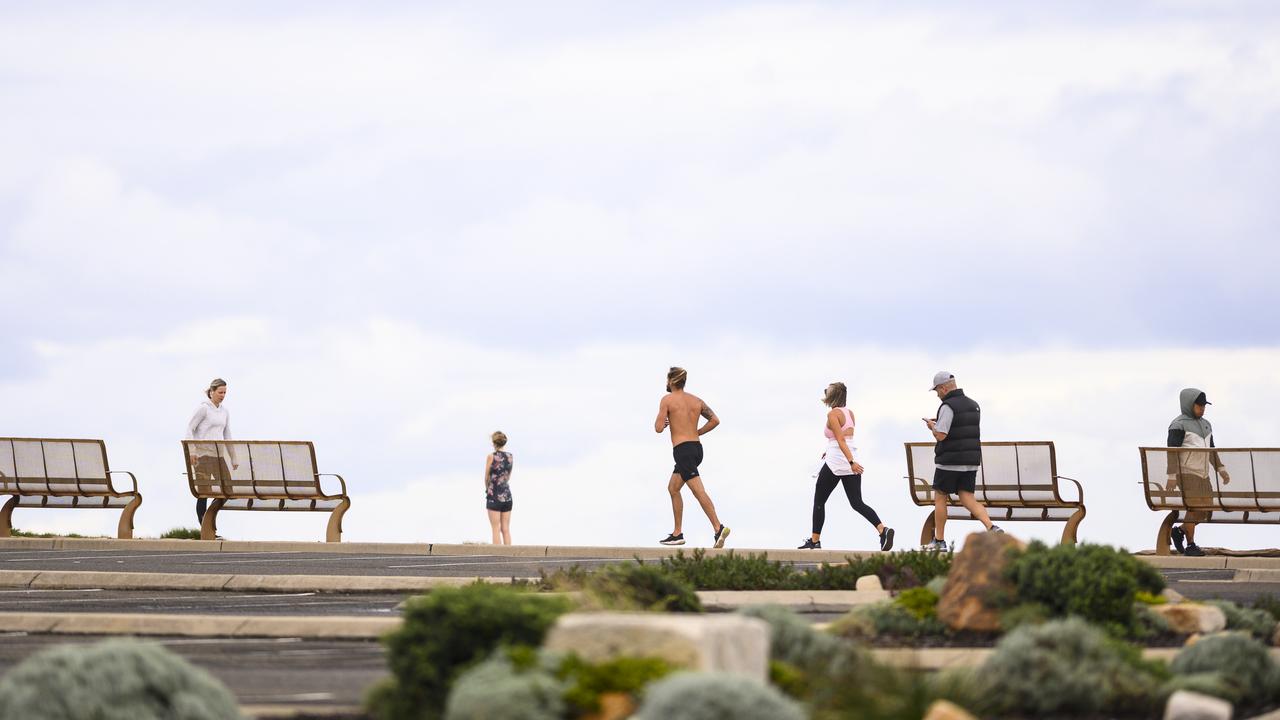
‘ANYONE HAS THE RIGHT TO TEST THESE MATTERS’
NSW Arts Minister Don Harwin resigned after he was served a $1000 penalty infringement notice electronically on Friday night.
Police said they were informed on Thursday the 55-year-old, who lives in the harbourside Sydney suburb of Elizabeth Bay, had relocated to a holiday home at Pearl Beach on the Central Coast “in contravention of a current ministerial direction”.
Mr Lawrence said it was difficult to see how Mr Harwin could have committed an offence due to relocating when the public health direction lists “moving … between different places of residence of the person” as a reasonable excuse.
“I think there’s more to this than what has been reported,” the barrister said.
“I suspect that Mr Harwin may well have said things to the police that have formed the basis for the issuing of a fine.”
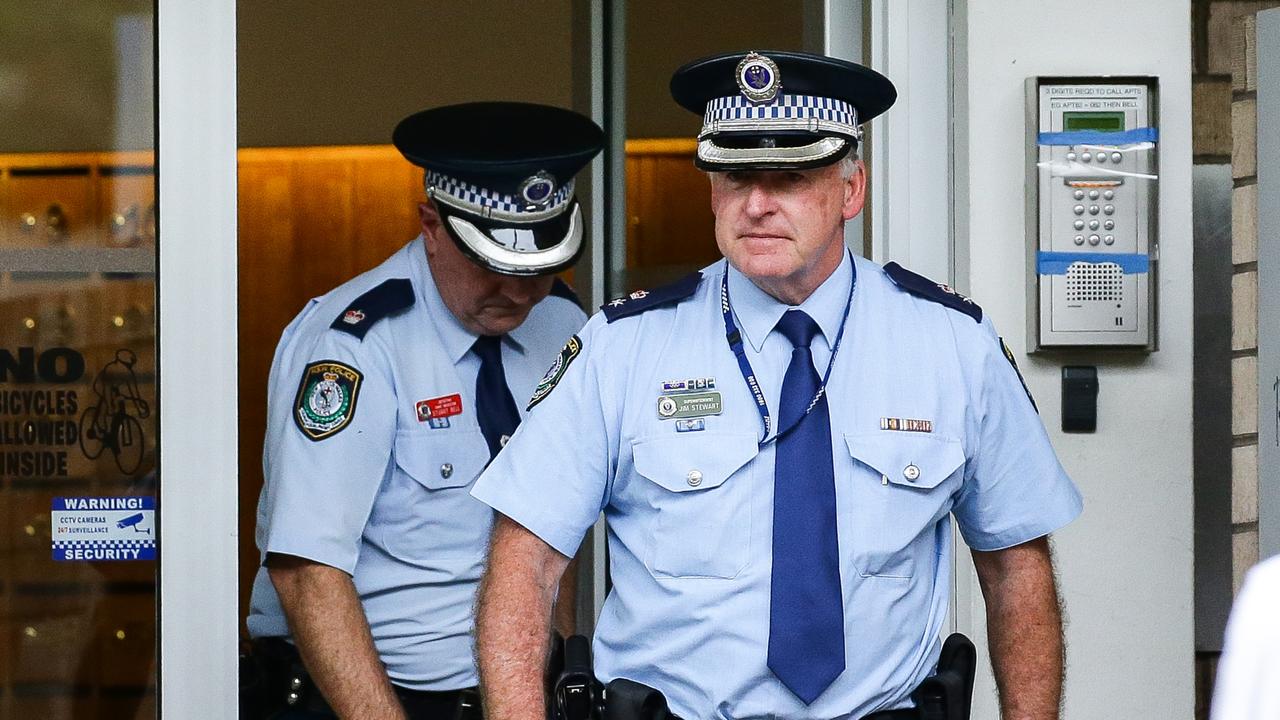
On Monday, Commissioner Fuller said Mr Harwin allegedly “came and went a number of times” in relation to his primary residence.
“I think the message is that if you're lucky to have two residences and one is in Sydney and one is more remote, then you do need to pick one,” he said.
The Commissioner noted someone else had been in self isolation at the coastal property, before mandatory hotel quarantine began, while Mr Harwin was also living there.
“I think there’s a range of messages there that probably aren’t helpful,” Mr Fuller said.
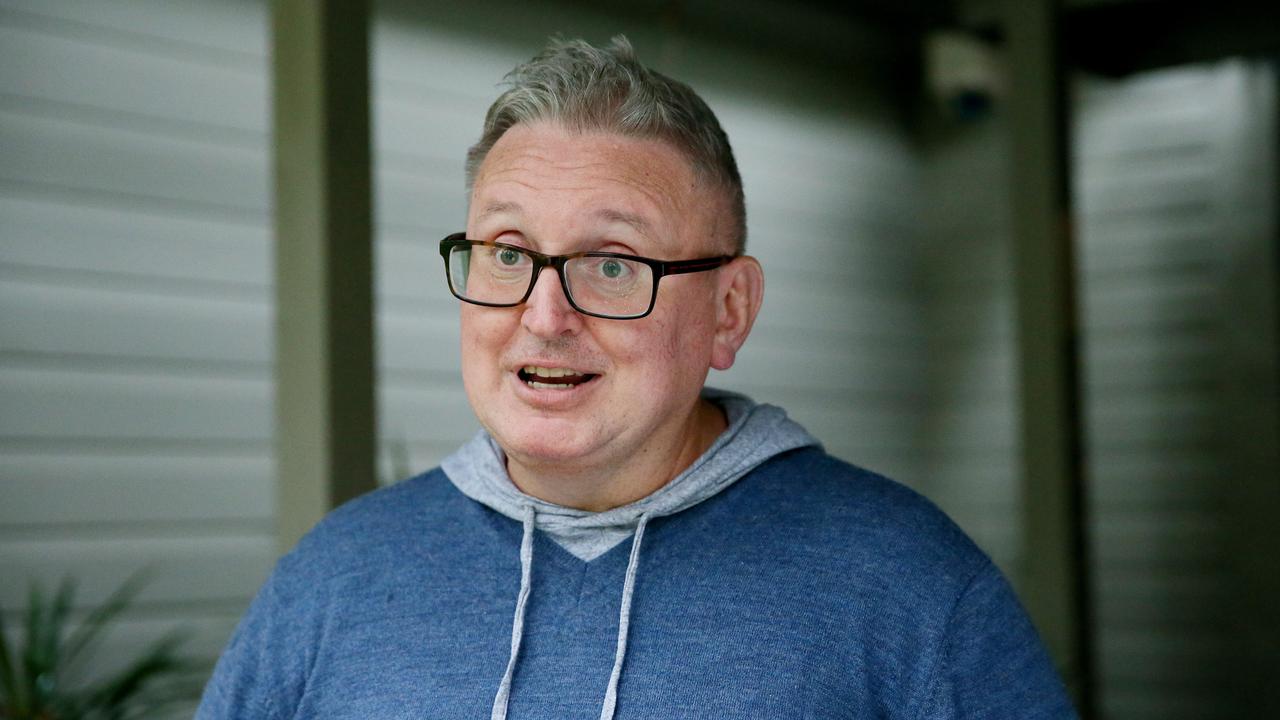
However, the Commissioner said “anyone who’s given a ticket still has the right to test these matters”.
“There’s still a judicial process that’s open and operating although at a limited capacity,” he said on Monday.
“The main thing is that we don’t demonise people for breaking isolation rules. If we think they’ve got it wrong, then they get a $1000 fine and I think that’s more than reasonable in terms of what’s expected of the NSW Police Force.”
NSW Premier Gladys Berejiklian on Wednesday announced a further 16 COVID-19 cases had been confirmed, bringing the state’s total to 2886.

